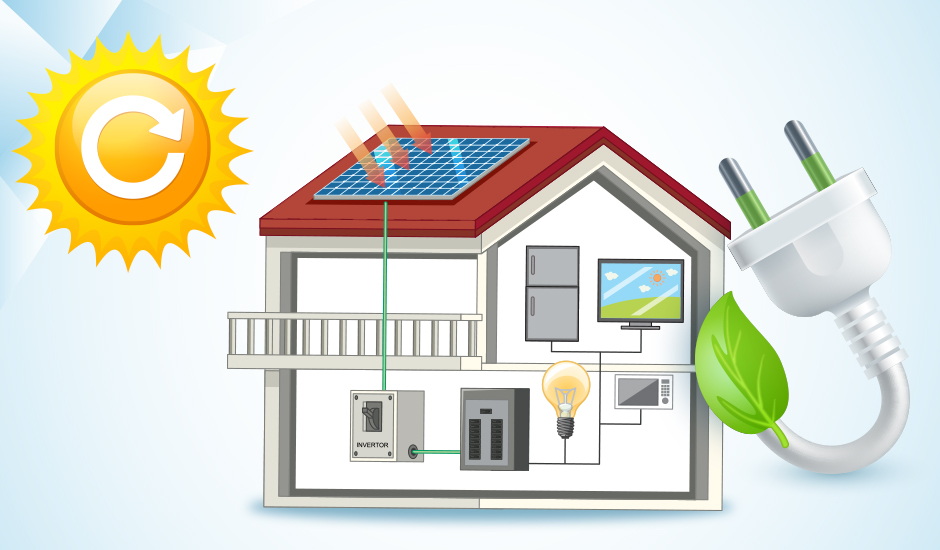
Introduction to Solar Energy and Basic Fundamentals
Solar energy is a type of energy obtained from sunlight. Through solar panels, this light is converted into electricity, allowing you to power your home, workplace and even your car. Just think about it: you can meet your electricity needs using the sunlight that pours down from the sky every single day. Pretty fascinating, right?
There are different types of solar panels, such as monocrystalline, polycrystalline and thin film. Monocrystalline panels are generally more efficient but a bit more expensive, while polycrystalline panels are more affordable although slightly lower in efficiency. Thin-film panels are lighter and more flexible, which makes them ideal for certain specific applications. Before deciding which panel to choose, you should clearly identify your needs.
Installation may seem like a complex process, but it’s actually quite simple. First, you need to consider the structure of your roof. The angle of the roof affects how efficiently you can collect sunlight. Then, it’s recommended to work with a local solar energy company to complete the installation. Remember, working with the right experts can ensure a smooth process.
There are many financial advantages of using solar energy. Although it may seem costly at first, you save money in the long run. Thanks to government incentives and tax reductions, the payback period becomes even shorter. Every penny you spend goes toward a clean energy future. This is something that can make you happy both financially and environmentally.
As you step into a new world, solar energy not only helps you make a difference but also gives you energy independence.
Solar Energy 101: Get Equipped With the Basics for 2025!
Environmental Benefits: Solar energy reduces carbon emissions and offers an eco friendly option. Considering the harms caused by fossil fuels, solar energy stands out as a clean and sustainable alternative. By using solar panels in power plants or in our homes, we can protect nature while also saving money. In fact, the energy produced by a solar panel is one of the purest gifts offered by nature.
Economic Advantages: Even though solar energy may seem a bit costly at the beginning, it provides significant savings in the long run. Reduced energy costs directly reflect on your budget. Moreover, as solar systems become more common and are supported by governments, the process becomes even more economical. Why not take advantage of this opportunity?
Energy of the Future: As we approach 2025, solar energy solutions are becoming integrated into more and more people’s lives. Innovative technologies and advanced systems are making this field more appealing by offering higher efficiency. Can solar energy meet the future's energy demand? It definitely can, as long as we stay open to innovation.
How to Save Energy From Sunlight? Tips for Beginners in 2025
One of the most effective ways to save sunlight energy is to use the right equipment. By choosing high efficiency light bulbs, you can reduce lighting costs. Most homes already have a few energy saving bulbs, but that’s not enough. LED lights are longer lasting and more economical. Sometimes small details bring big savings, right?
Using sun filter curtains on your windows helps you control natural light. This keeps your home cooler in the summer and reduces air conditioner use. And no, you don’t choose them only for aesthetics. They help with energy savings too.
Have you ever wondered what passive heat gain is? This is where it comes into play. The architecture of your home determines how you use sunlight. If your windows are positioned to capture sunlight efficiently, you can reduce your heating costs by almost half. Natural ventilation methods also keep indoor air fresh without consuming energy.
If you’re considering starting to use solar energy in 2025, there are more advanced solutions as well. Solar panels may seem expensive at first, but they offer great long term savings. As technology advances, these systems are becoming more affordable and more efficient. Who knows, maybe in a few years we’ll become one of the leading countries in solar energy usage.
Benefits of Using Solar Energy in 2025: A Guide for Beginners
Economic Savings: Solar energy systems require an initial investment, but in the long run, reduced energy bills help you save money. Imagine a noticeable decrease in your monthly bills. It not only eases your budget but also increases the value of your home. Who would say no to a house equipped with solar panels?
Environmental Benefits: Considering the environmental impacts of fossil fuels, solar energy offers a perfect alternative. By reducing carbon emissions, you help slow down air pollution and climate change. You contribute not only to nature but also to future generations. Isn’t it great to help ensure a cleaner world for them?
Energy Independence: By using solar energy, you can meet your energy needs on your own. This reduces cities’ dependence on external energy and makes you more independent. Producing your own energy is an amazing power, right?
Technological Developments: Solar energy technologies are expected to advance even further in 2025. More efficient panels, storage systems and smart energy management can influence your energy choices. Don’t miss the opportunities offered by the sun.
5 Criteria to Consider When Choosing Solar Panels
The efficiency of solar panels determines how much energy they will generate. High efficiency panels produce more energy while occupying less space. If possible, choose products with an efficiency rate of 20 percent or higher.
Solar panels must be resistant to external conditions. High quality panels maintain performance even under harsh weather conditions. Also choose brands that offer long warranty periods.
Price is important, but choosing the cheapest option may cause problems later. A panel that offers long term savings might cost more initially but will pay you back over time.
Not all brands are equal. Well known brands generally offer more reliable products. Checking customer reviews and brand background is a smart step.
Installation requires expertise. A good installation team increases the efficiency of the panel. After sales support is also crucial. Being able to get help when you need it brings comfort in the long run.
Where Should Beginners Start With Solar Energy Systems?
Your roof is usually the best location. But first ask yourself: Is my roof suitable for a solar energy system? The slope, direction and material affect energy production. Local climate conditions also matter. Heavy snow regions may see lower efficiency.
Budget planning is another important factor. The initial cost may seem intimidating, but remember that the system brings savings over time. Government incentives can help reduce the cost.
Choosing the right components makes a big difference. Researching brands and products will help you find the best match for your needs. Every component affects the system’s overall performance.
Consulting experts can guide you on efficiency and durability. It’s always helpful to get professional advice.
